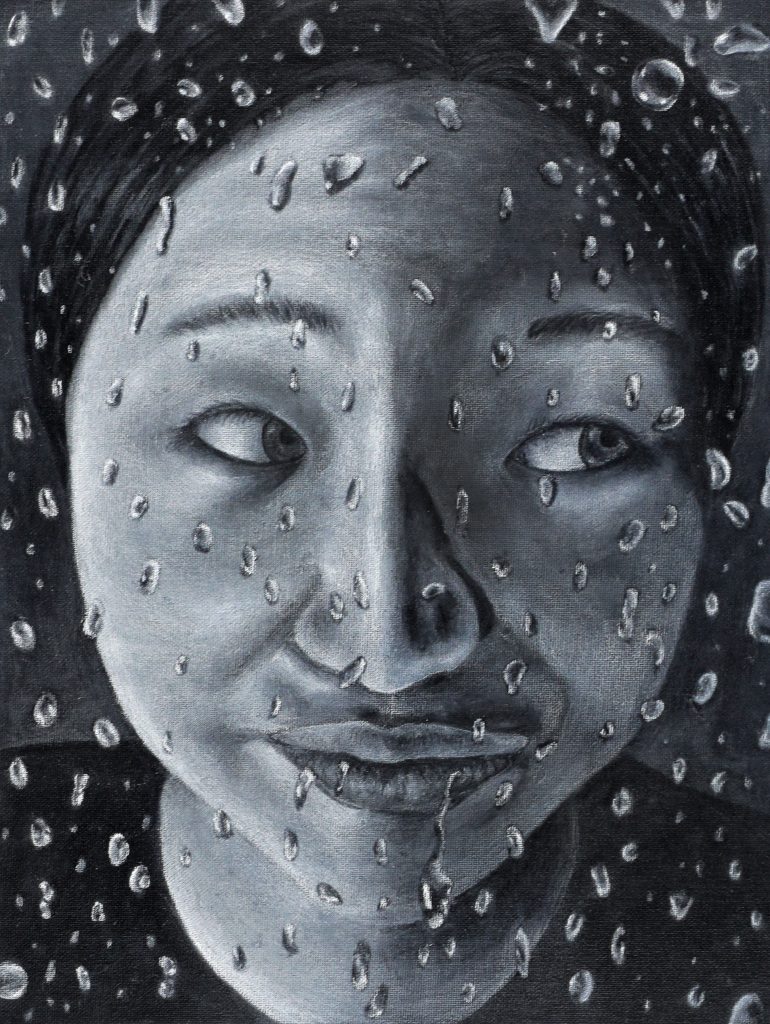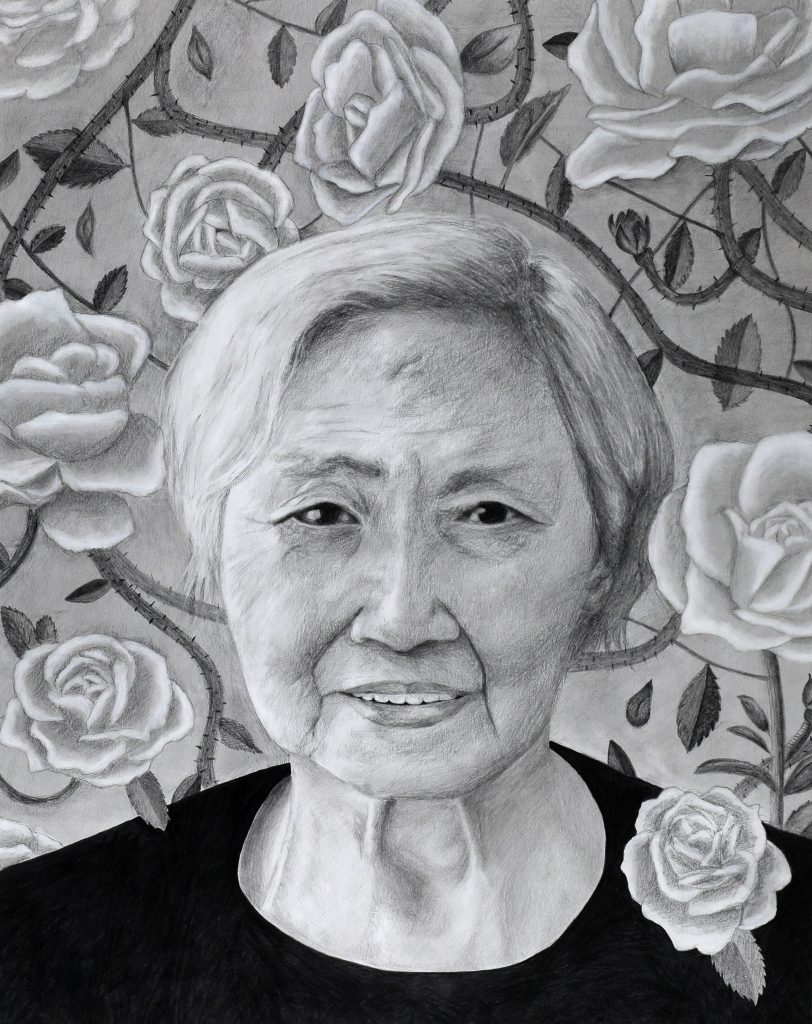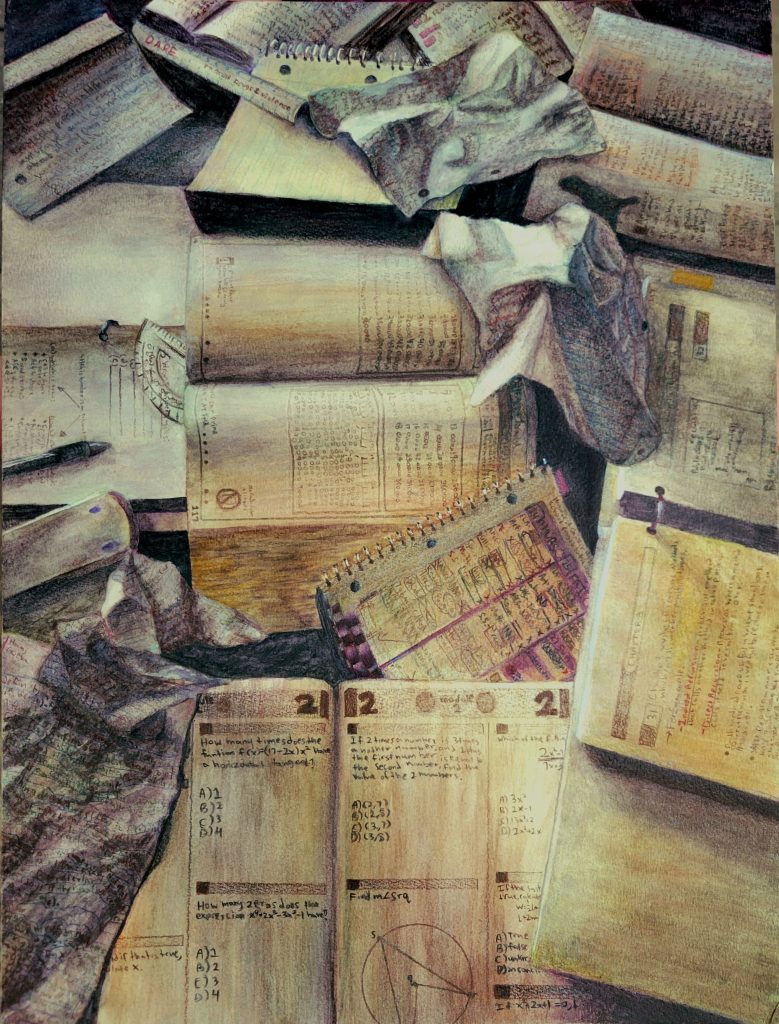

Literary Journal for Young Writers
By Sabrina Xu
By Sholanke Boluwatife Emmanuel
By Audrika Chakrobartty
Audrika Chakrobartty is an eighth-grader who lives in Texas. She enjoys writing,reading, drawing, and listening to music during her free time. She’s also an avid artist, working with all types of mediums, but her favorite one to work with is just pencil and paper. She also enjoys creating watercolor/oil paintings.
By Hans Gupta

Hans is a sixteen-year-old, Indian American, male from upstate New York who has, alongside mathematics, passionately pursued art since young. Now, as a high school student in junior year, he’s looking to go further with his art skills and publicize his work. On a more personal level, he puts a high value on academic excellence, sports (Tennis and Badminton ), and individual nuances or hobbies that add texture to a well rounded person.
By Diya Maria Tom
Talking about the Kerala chai requires a geographical explanation of the land that is even titled as God’s own country, where the emerald green landscapes meet the bright blue embrace of the Arabian sea. But amongst all this charm, it’s the evenings at home that truly transport you to a dimension of artistry, emotions, and sweetness beyond compare.
The evenings are always different. It can be a warm, golden embrace that caresses the lush green landscape, or sometimes after the morning rains that quenched the thirst of the earth, the evenings bring a refreshing change to the sky once heavy with clouds, now wearing a duet between the royal purples and the most ethereal blues.
Our home is nestled amidst a lush sanctuary of trees, both big and small. The big trees with their sprawling canopy and the delicate flowering plants that hug the fence co-exist in the harmonious surrender to nature’s rhythm. The mango trees in our front yard are in full bloom, their branches heavy with fragrant blossoms, a perfume that lingers on the senses. It is as if the very essence of Kerala’s summer has been captured in those blossoms.
Snacks play an important role in the illustrations of evenings in Kerala. They are not just culinary creations; they are incorporations of generations of culinary understandings, wisdom, love and tradition.
Imagine biting into a crispy golden brown yet yellow sphere that crackles like autumn leaves underfoot. This is the magic of the lentil-stuffed sukhiyan. As you take the first indulgent bite, your taste buds are met with a sweet surprise – a luscious, fragrant filling of cooked green-gram in jaggery and grated coconut, infused with love and the flavors of cardamom. As the effort I put into explaining sukhiyan would explain my love for them, there are also other snacks like neyyappam, and vattayappam. And how not to mention wonders created with plantains,— and impossible not to mention a malayali’s relationship with tapioca, with love – kappa. The creativity and ability of Kerala home cooks to turn a humble root into boiled or crispy , savory chips and much more.
Sitting on the porch, as we sip our chai with some homemade snacks, the warmth of the cup in my hands mirrors the warmth in my heart.
Neighbors pass by with their cows, heading back home after a day of grazing. An everyday sight that adds rustic charm to our village, we exchange pleasantries, wits and stories, connecting in a way that only happens in tight-knit communities. The rhythmic clinking of cowbells accompanies our conversations, blending seamlessly with the philharmonic evenings.
My grandmother, a living storehouse of wisdom and love, joins me. Watching the world go by, her wrinkled hands, adorned with simple undecorated gold bangles that chime like music effortlessly find their way through my hair, massaging my scalp with a fondness that words cannot express. Her touch is a balm to my soul, an unspoken reassurance that I hold dear. A very simple gesture that spoke of a lifetime of care and affection. Our conversations about life, her advice, stories, her patiently listening to me, her beautiful smile filled with innocence and all that love, together makes all those moments very special.
As the stars begin to twinkle in the velvet sky, nature quiets down, the only sounds are the crickets. It’s a moment of serenity, a reminder of the beauty of simplicity. Whispering “good night” to the rustling leaves, I carry the evening’s magic with me to my dreams.
An aspiring healer with a passion for words and a stethoscope around her neck., Diya Maria is a Tennessee- based nursing student. A devoted reader and an art enthusiast, she tries to bring unique perspectives to the pages that resonate with the heartbeat of readers everywhere.
By Tara Prakash
Dear Nani,
I’m writing to you from the mountain top in Sewanee. I’m participating in a creative writing conference here. I think I told you this, but you probably forgot. You always love reading my pieces, so I’m sending you a few stories with this letter. I’ve enlarged the font, so you can read them. I know you’re forgetting so much, so let me tell you what I remember.
I remember bowls of Annie’s mac-and-cheese with peas and purified water from a pitcher. I loved that mac-and-cheese, and I also loved the bowls. You always used the same one, ceramic white and laced with green tulips on the lip. One time, I asked my mom to make the mac-and-cheese, just the way you did, but it didn’t taste quite the same. When I asked why the water was purified, not the normal water I had at home, you said “Only the best for my favorite granddaughter!” I remember smiling.
Even when Nana spent hours in his room, lying on the gray comforter and staring at the chipped ceiling with glazed eyes, you were moving around, grabbing balled up socks and playing cards trapped under the legs of kitchen chairs, bony fingers hammering nails into the wall to hang up my school pictures and family photos, light bouncing off smiling faces.
I remember watching Young Sheldon in your living room in the evenings. Usually for the first twenty minutes of each episode, you would be bustling around in the small kitchen, pulling out chocolate-almond Dove bars and pouring us glasses of fizzing Coke, but I loved when you would join Rahul and me on the couch, the embroidered burgundy blanket draped across our laps. I’m pretty sure I looked at you more than the television screen, how a smile broke across your face whenever Missy and Sheldon teased each other, reminded you of me and Rahul, I think. You were so pretty when you laughed, your head thrown back, slightly crooked smile and dimpled cheeks, dark eyes creased. I don’t remember you ever scolding us, even when bits of chocolate broke off the bar and fell onto the carpet, lost in the plush crimson. I always fell asleep before the episode ended, my soft snore pushing into the quiet room.
This piece that I’m writing now came from an “I remember” prompt. When our teacher assigned it to us a few days ago, the other kids in my class rolled their eyes. It’s a generic prompt, an easy one. But I couldn’t wait to jump in, to close my eyes and picture your egg-shell white plaster walls, your large fluorescent light bulbs, the small manicured lawn out front. I do a lot with memory in my writing. It’s funny how memory works, how I can remember which photos are taped on your fridge but lying in bed some nights, staring up at the glowing stars taped on my ceiling, I forget the sound of your laugh. I have a bit of an obsession with memory in my writing, maybe because there’s so much of it. There’s always more to remember. And I’m watching you and learning how easy it is to forget.
I remember you would carry me to the bed, your fingers pressing gently into my ribs, until you no longer picked me up. I learned this one evening as I lay sprawled on the couch, my brother’s voice muted. I waited for you to scoop me up, for your cool hands on my waist, but instead you gently shook my leg and told me I was too heavy for you to lift. When I looked up at you, lines creased your cheeks, your dimples. I went to my red-and-white trundle bed that night with a lump in my throat and fell asleep to Rahul’s voice talking on the phone in the room next to mine, where he slept. I woke up in the morning to find clumps of dark brown hair in the bathroom trash can, thick locks among cherry Dum-Dum wrappers and Old Navy t-shirt receipts. That was how I found out. I ran, crying, to the kitchen, where I found you. You set down your whisk and pushed the bowl of egg yolks to the side to sit down with me, groaning as you lowered yourself onto the cool linoleum tiles. Our backs against the refrigerator, you pressed your hand firmly onto mine. Later that afternoon, I curled up in the sagging bean bag in the corner of the room, my face in the fuzz. When you survived the chemotherapy, and the doctors removed the lump in your breast, I thought you were immortal. Then aging kicked in, and I could see every day that you weren’t.
I remember Wii tennis, standing on the crimson carpet, flinging the remote around to hit the ball flying toward us on the screen. We almost hit each other so many times, a light breeze from a remote whizzing too close to skin. I got a bruise from when I slammed my arm mid-swing into the side of the brown sectional couch. You were never too good at playing. You’d have to sit down on the couch a few points into the game, out of breath, your shoulders pressed against the fabric back of the couch, and you’d lose some leverage on your swing. So, I played easy on you. Some points, I even pretended to not see the ball and swung a few seconds too late. You would always grin when you won, spinning around on the carpet, your arms flying around your waist in celebration.
At our meeting yesterday, my teacher told me to remove some of the details. They’re unnecessary, she said. I nodded, smiled politely. I didn’t know how to tell her that the kitchen isn’t just bright, but sunlight falls through the window in showers. The carpet isn’t red; it is maroon with flecks of gold and auburn if you kneel down and stare at it long enough. The speakers aren’t low quality; the voices crackle like static into the family room. I understand what my teacher is saying, but I am attached to these details I’ve grown up with. The carpet is not red.
Whenever I walked to the bathroom, I would stop at the portrait of your brother, clean-shaven face, dimpled cheeks, military uniform ironed and smooth. He died in a plane, you had told me once, after I’d asked a few times. When I probed further, you suggested a game of carrom and walked out of the room before I could respond. I have a lot of questions. What did you want to be or do in your life? Did you get it? Were you loved in the way you wanted to be?
Tara Prakash is an eleventh grader at Sidwell Friends School in Washington, D.C. Her work has been recognized in the Scholastic Art and Writing Awards (where she won a National Gold Medal and a National Silver Medal), YoungArts, the New York Times, Blue Marble Review, Bow Seat’s Ocean Awareness Contest, The Daphne Review, and other literary journals and platforms. As a 2023 mentee in the Adroit Summer Mentorship Program, a participant in the Iowa Young Writers’ Studio, and the founder of a nonprofit, Write to Right, which teaches writing to underserved communities, Tara loves writing poetry, flash fiction pieces, and creative nonfiction essays.